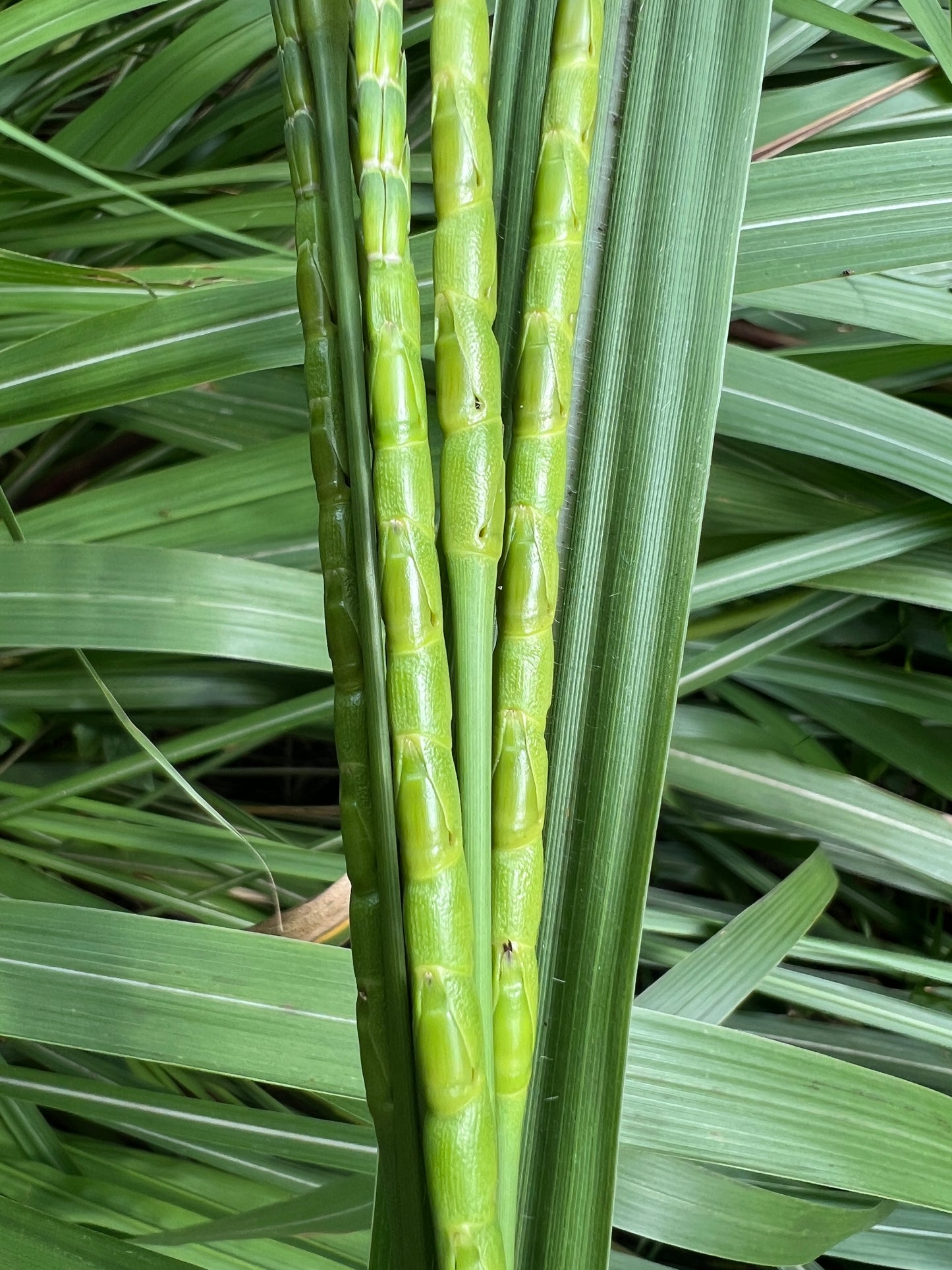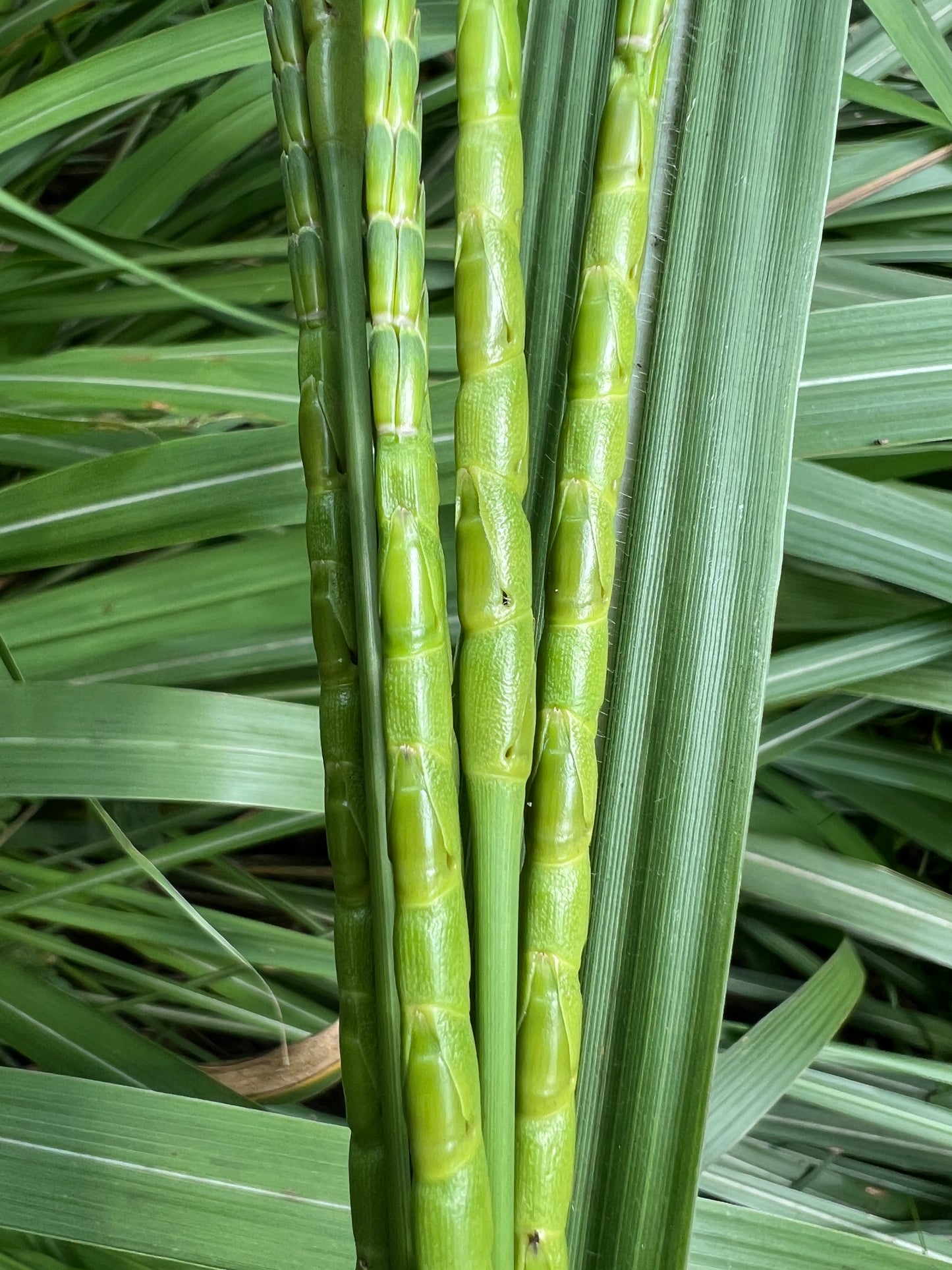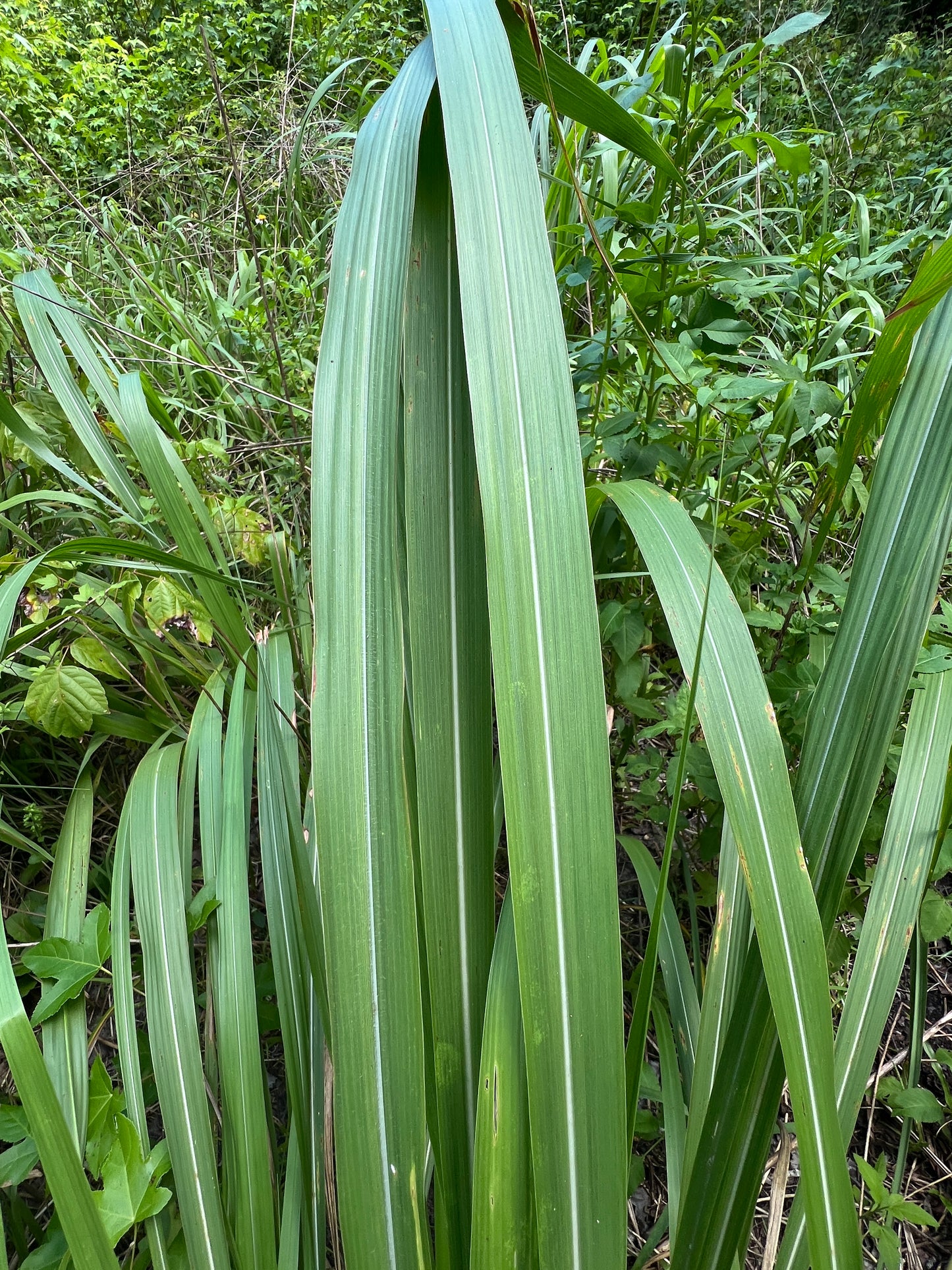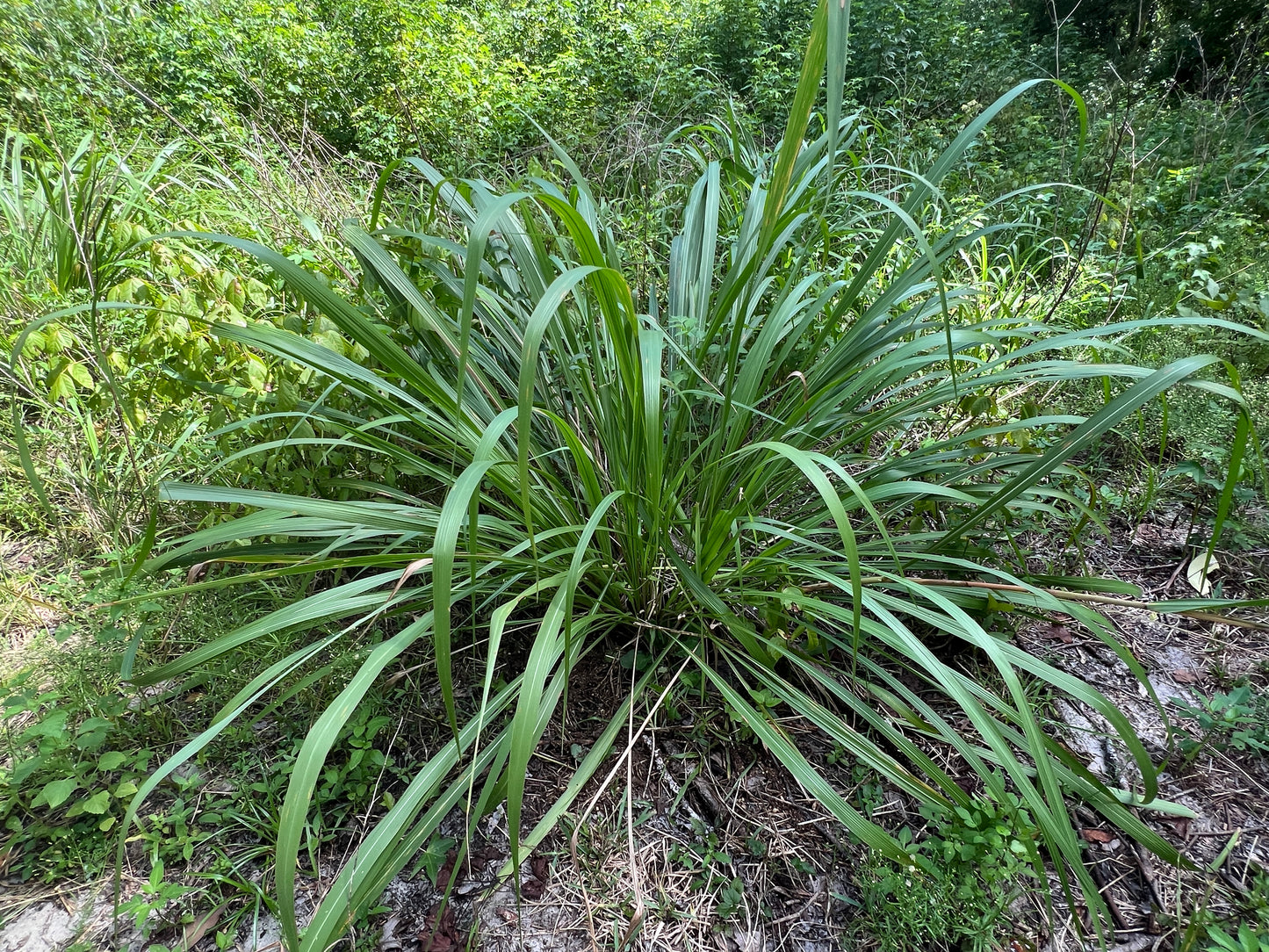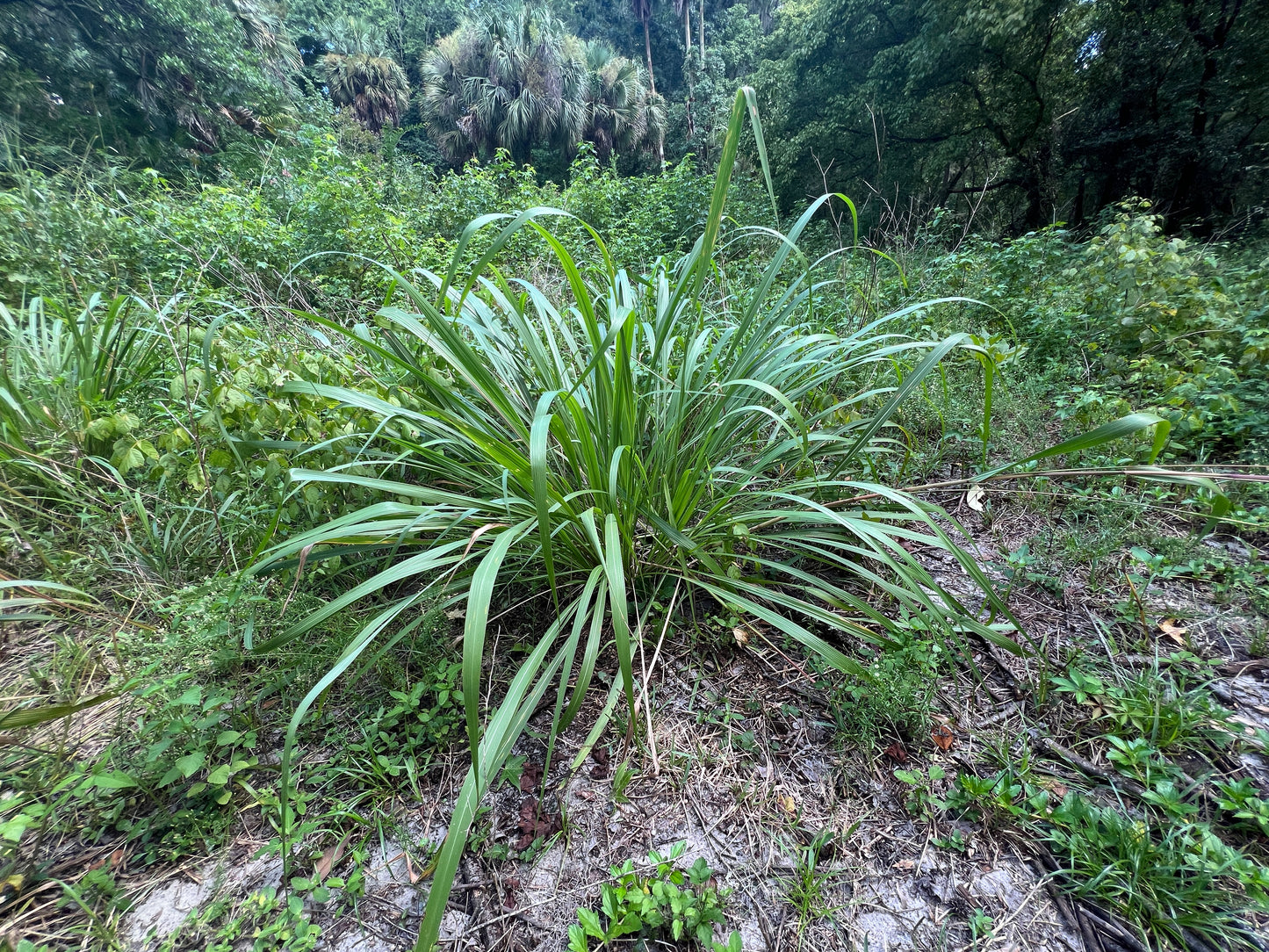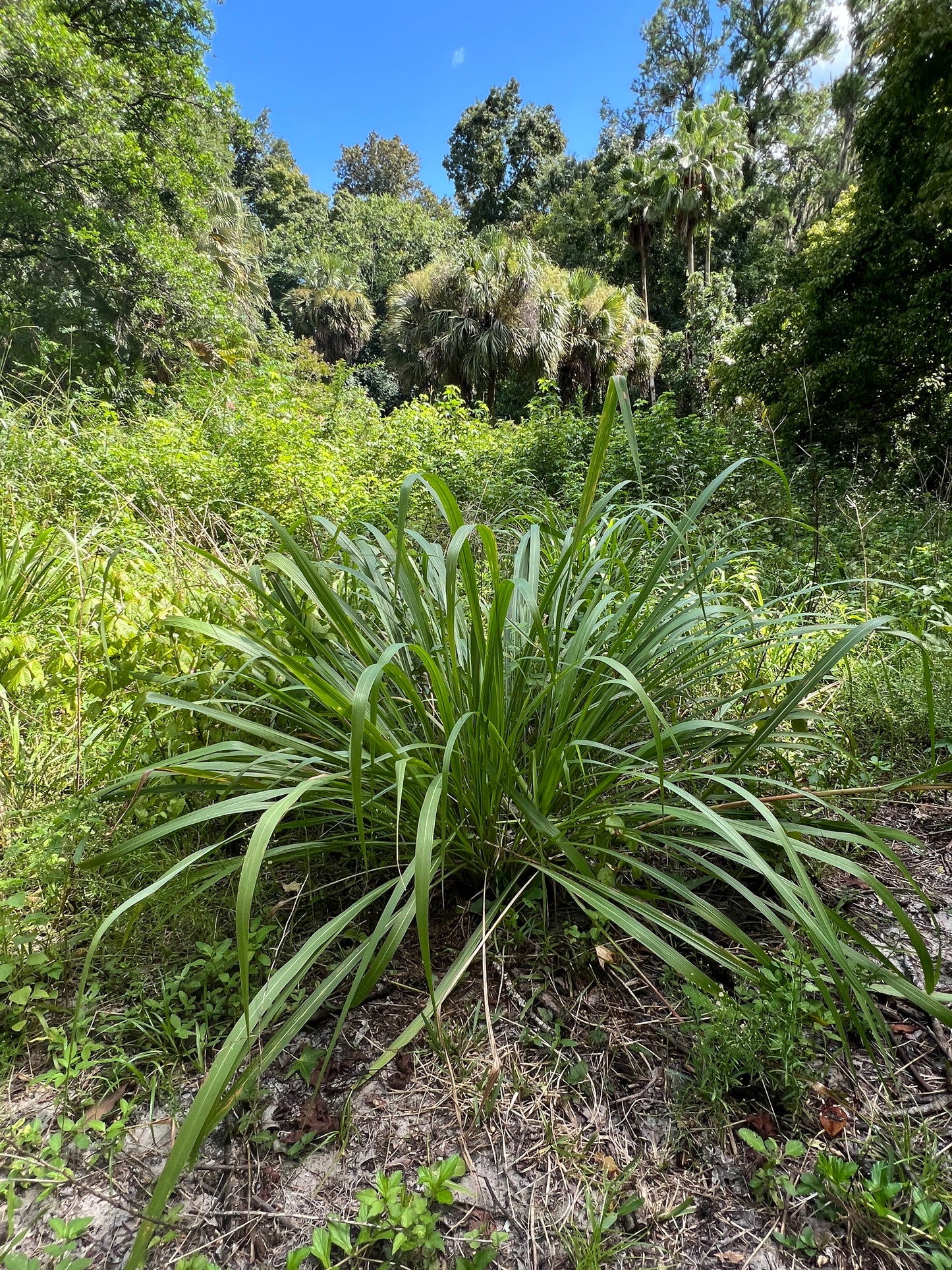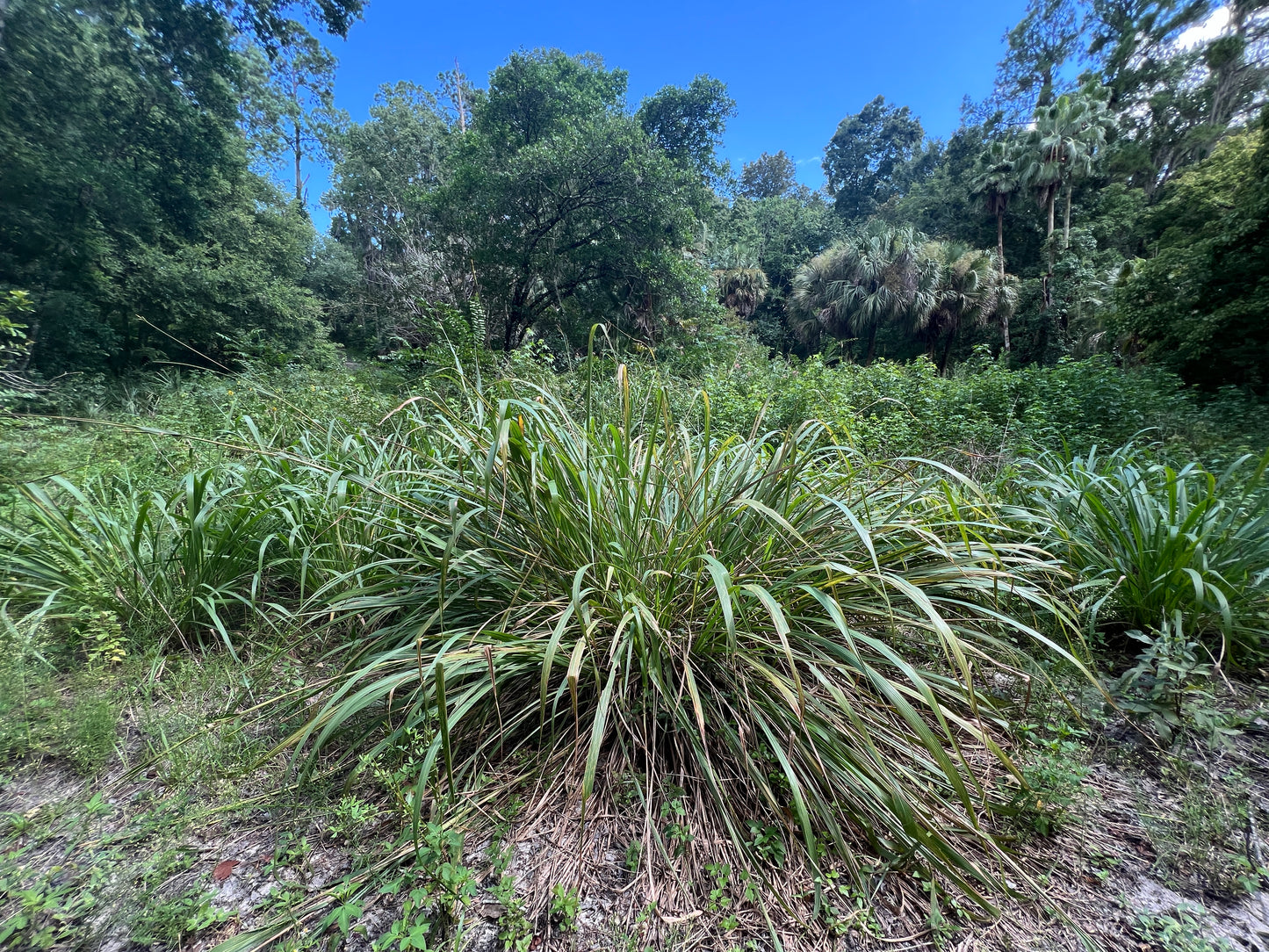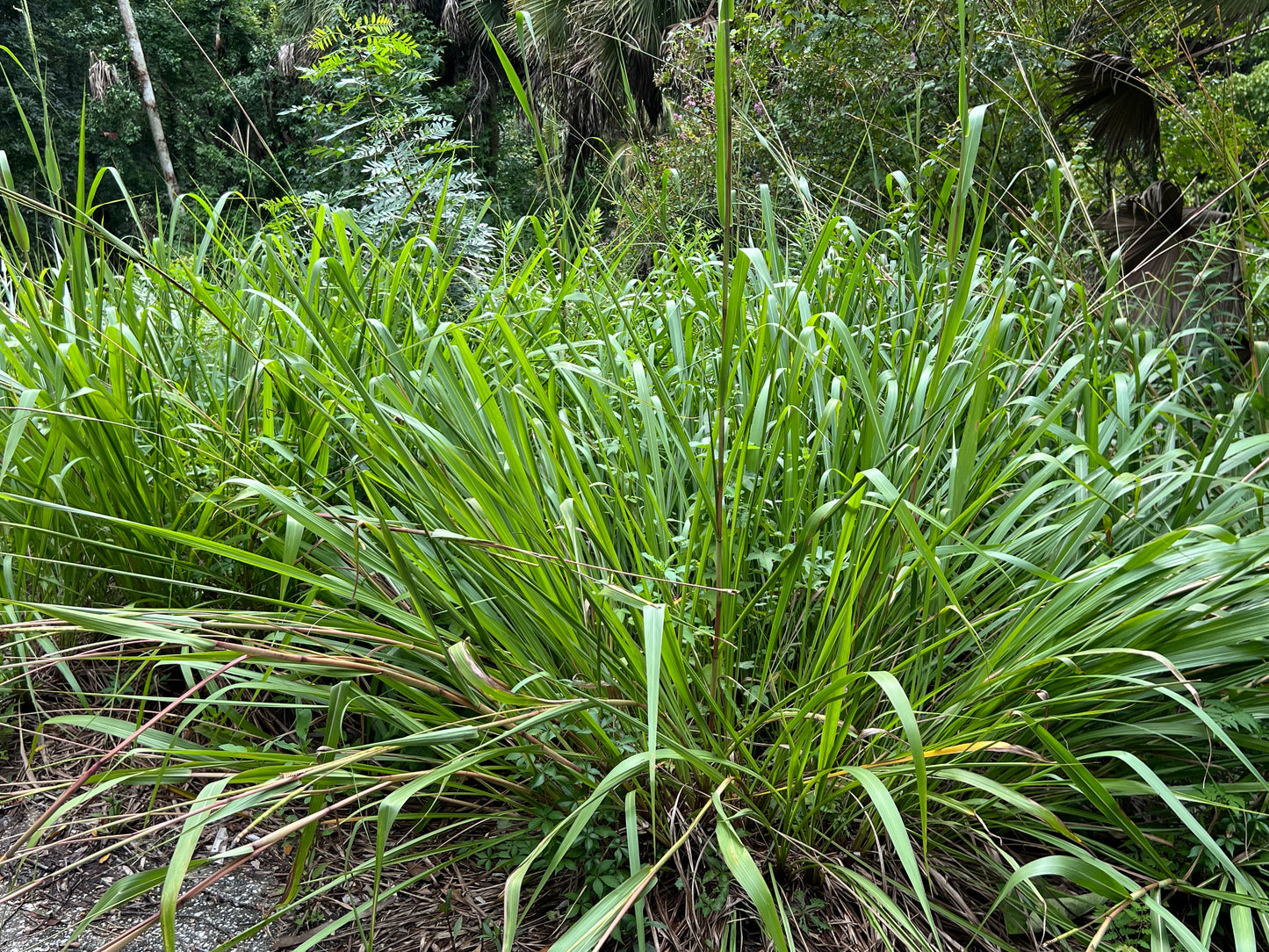Floridaseeds
Eastern Gamagrass 10 Seeds Tripsacum dactyloides
Eastern Gamagrass 10 Seeds Tripsacum dactyloides
Couldn't load pickup availability
Tripsacum dactyloides, commonly known as Eastern Gamagrass, is a perennial grass native to North America, particularly in the central and eastern United States. Here’s a concise overview of its key characteristics and uses:
Description:
Growth Habit: Eastern Gamagrass forms dense, clumping tufts that can reach heights of 3 to 6 feet. It has a robust and fibrous root system.
Leaves: The leaves are broad, lance-shaped, and can grow up to 24 inches long. They have a coarse texture and are green to bluish-green in color.
Flowers: It is a dioecious species, meaning male and female flowers are on separate plants. The flowering spikes are usually greenish and appear in summer.
Seeds: The seeds are encased in a hard husk and are typically small, with a grain-like appearance. They are a food source for wildlife.
Habitat and Adaptation:
Soil: It prefers well-drained soils but can tolerate a range of soil types, including sandy and loamy soils.
Climate: Eastern Gamagrass is well-adapted to various climate conditions, including drought once established.
Environment: It naturally occurs in prairies, savannas, and open woodlands.
Uses:
Forage: It is highly valued as forage for livestock due to its nutritious and palatable qualities.
Soil Conservation: The deep root system makes it effective for soil erosion control and stabilization.
Ecological Value: It supports wildlife by providing habitat and food sources.
Cultivation:
Planting: Eastern Gamagrass can be established from seed or transplants. It requires adequate moisture during establishment but is drought-tolerant once mature.
Maintenance: It generally requires minimal maintenance but may benefit from periodic mowing or grazing to promote healthy growth and seed production.










